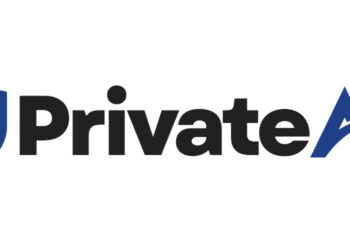YNOT – An independent arbitration tribunal on Friday handed the Internet Corporation for Assigned Names and Numbers a fairly substantial slap on the wrist by ruling the domain-name oversight body violated its own bylaws when it rejected dot-xxx in March 2007. In addition, the panel ordered ICANN to reimburse dot-xxx registrar applicant ICM Registry LLC nearly $250,000 in arbitration fees.The reimbursement is only a drop in the bucket compared to the more than $3 million ICM claims to have spent fighting ICANN over the past three years. However, with the decision of the International Centre for Dispute Resolution’s panel in hand, ICM now foresees nearly instant approval for the controversial sponsored Top-Level Domain. On Monday ICM Chairman and President Stuart Lawley said the registrar plans to be selling dot-xxx names by the end of the year — at a proposed annual rate of $60 a pop.
The saga of dot-xxx dates back to at least 2001, when ICM responded to an ICANN request for proposals aimed at generating new sTLDs to serve the needs of designated communities. In theory, the communities already had been approached by the registrar hopefuls who submitted applications, and the communities were amenable to supporting the sTLDs should they be granted. Based on the substance of ICM’s application to administer an sTLD specifically for pornographic content, ICANN granted preliminary approval in June 2005.
And then the excrement hit the air-circulation device. Not only did the adult entertainment industry begin to question the potential for censorship and “ghettoization” of adult content if such a domain existed, but ICANN’s own Governmental Advisory Committee and the governments of several nations spoke against the proliferation of “obscenity” they expected would result following the creation of a “porn channel” on the internet.
In March 2007, after considering various contract options with ICM, ICANN withdrew approval for dot-xxx and declared the domain dead. At the time, then-Chairman Vinton Cerf made the wry observation the adult-specific sTLD would be resurrected only “over my dead body.”
According to the ICFDR’s independent review panel, that’s where ICANN’s mistake occurred. The organization’s reconsideration of the so-called “sponsoring community” was inappropriate, given ICM apparently met the other criteria (primarily financial and technical) for approval.
In its report, the panel noted, “ICM contends that [the June 2005] decision was definitive and irrevocable. ICANN contends that, while negotiating commercial and technical terms of the contract, its board continued to consider whether or not ICM’s application met sponsorship criteria, that it was entitled to do so, and that, in the course of that process, further questions about ICM’s application arose that were not limited to matters of sponsorship, which the board also ultimately determined adversely to ICM’s application.”
Two of the three arbitrators on the panel sided with ICM.
In its conclusion the tribunal wrote, on the one hand, “[t]he panel does not question the integrity of the ICANN board’s disposition of the ICM Registry application, still less that of any of the board’s members.” However, “ICM argues that its application was rejected in part because of its inability to comply with a contractual undertaking to which it never had agreed in the first place…. To the extent that this is so — and the facts and the conclusions drawn from the facts by the ICANN board in its resolution of March 30, 2007, in this regard are not fully coherent — the panel finds ground for questioning the neutral and objective performance of the board, and the consistency of its so doing with its obligation not to single out ICM Registry for disparate treatment.
“While the panel has concluded that by adopting its resolutions of June 1, 2005, the board found that ICM’s application met financial, technical and sponsorship criteria. Less clear is whether that determination was subject to reconsideration. The record is inconclusive [for conflicting reasons favoring both ICANN and ICM]. The panel nevertheless is charged with arriving at a conclusion on the question.
“In appraising whether ICANN on this issue ‘applied documented policies, neutrally and objectively, with integrity and fairness’ (Bylaws, Section 2(8)), the panel finds instructive the documented policy stated in the board’s Carthage resolution of October 31, 2003, on ‘Finalization of New sTLD [request for proposals],’ namely, that an agreement ‘reflecting the commercial and technical terms shall be negotiated upon the successful completion of the sTLD selection process.’”
The report concludes, “In the panel’s view, the sTLD process was ‘successfully completed,’ as that term is used in the Carthage RFP resolution, in the case of ICM Registry with the adoption of the June 1, 2005, resolutions. ICANN should, pursuant to the Carthage documented policy, then have proceeded to conclude an agreement with ICM on commercial and technical terms, without reopening whether ICM’s application met sponsorship criteria.”
The panel’s decision is not binding on either party, although it is most likely to be seen as a roadmap for how to proceed from this point. The panel advised ICANN’s board to revisit the dot-xxx application. Since 2007, the board has changed significantly in both constitution and attitude, and that may affect the outcome. In addition, sTLDs have been abandoned in favor of ICANN’s new plan to grant general TLDs to almost any applicant that can prove it is financially viable and technologically proficient.
The 79-page report presented by the independent review panel is here.












